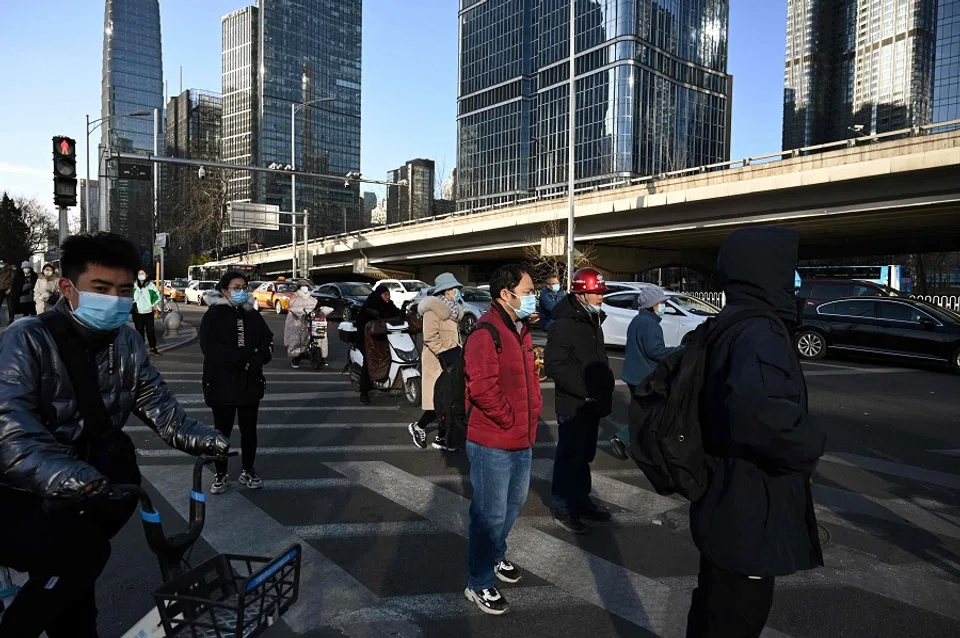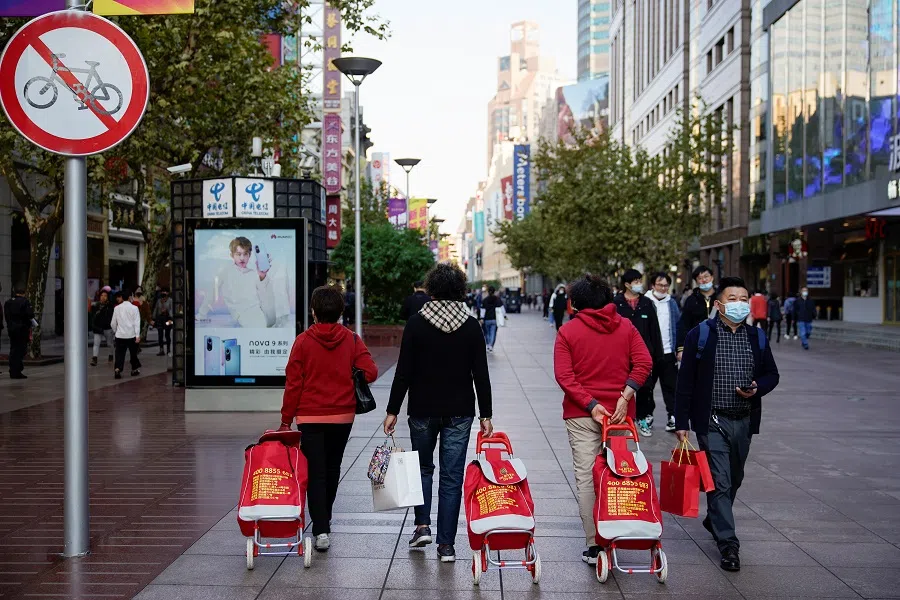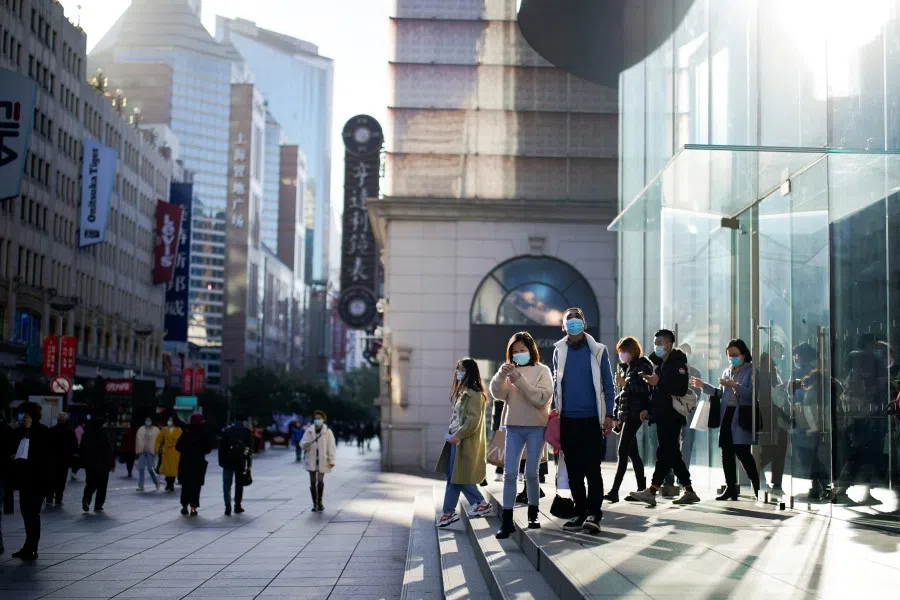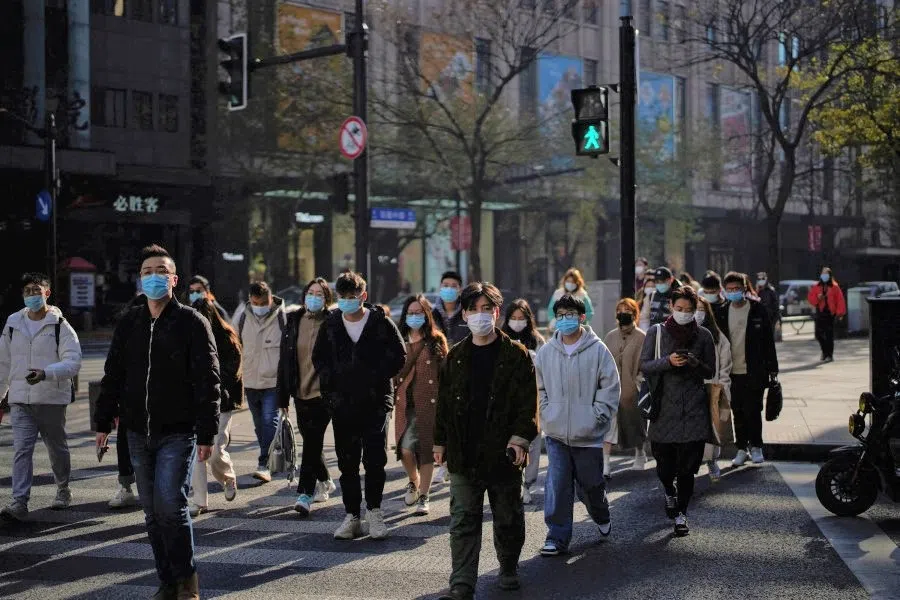China's desperate measures to avert a looming economic crisis
Hefty civil servant pay cuts and desperate measures to get more money in regional coffers portend headwinds in China's economy. The "triple pressures" it currently faces - demand contraction, supply shocks and weakening expectations - will see China needing to right severe imbalances and do more than just pushing for high-quality development.

As we approach the end of 2021, warning lights are flashing over China's economy, foreshadowing difficult and austere days ahead.
Apart from academics' warnings and the Central Economic Work Conference's assessment, news about civil servant pay cuts in various provinces and cities have been circulating online since the beginning of the month.
Economically developed regions such as Jiangsu, Zhejiang, Guangdong, Fujian, and Shanghai are bearing the brunt of the cuts, with a female civil servant from Zhejiang complaining on Weibo that her pay was cut by 25%, or roughly 50,000 RMB (approximately S$10,000), seriously affecting her daily expenses. Other news also said that some regions in Guangdong have delayed the payment of allowances, and only paid basic salaries.
Cash-strapped local governments
Civil servant salaries in China consist of a basic salary, performance bonus and various allowances. As it was actually the performance bonus that was cut, public opinion interpreted this move as rectifying the overly-high bonuses given.
However, as performance bonuses and allowances account for a large proportion of a civil servant's income, particularly in economically developed areas, it is obvious that cuts in this portion of the salary would hit people where it hurt most.
But this pay cut pales in significance to livestreaming queen Viya's hefty fine of 1.341 billion RMB for tax evasion. This week, it was reported that Viya had evaded 643 million RMB of taxes over the past two years. On top of surcharges on overdue payments and fines, she has to pay a total fine of 1.341 billion RMB.

In the less economically developed areas, an infuriating scene is playing out. In Hebei's Bazhou, a county-level city with a population of only 750,000, local government officials conducted "carpet bombing" inspections across the city in order to fill the budgetary gap.
Through arbitrary fees, fines and meting out payment requests at random, it collected 67 million RMB in fines in 67 days. Last week, its behaviour was harshly criticised by the supervisory inspection body of the General Office of the State Council.
These laughable and embarrassing events are a manifestation of the "triple pressures" that China is facing: demand contraction, supply shocks and weakening expectations.
In response to the aforementioned events, Tsinghua University sociology professor Sun Liping wrote an article on 22 December analysing civil servants' pay cuts, Viya's tax evasion case and the Bazhou incident as a whole. He drew the conclusion that China's local governments are cash-strapped. For example, Bazhou's behaviour was akin to daylight robbery but if they did not do so, their coffers would be empty.
Netizens jokingly responded to Sun's article, saying that the situation reflected the north-south economic divide - Zhejiang's Hangzhou only needed to fine Viya to bring 1.3 billion RMB into its coffers; Bazhou fined the enterprises of the whole city, but only brought in 60 million RMB.
China under 'triple pressures'
These laughable and embarrassing events are a manifestation of the "triple pressures" that China is facing: demand contraction, supply shocks and weakening expectations.

The slowdown in income growth has led to decreased consumption, while the property industry, traditionally a pillar of economic growth, is in a slump which is creating a ripple effect on various aspects. Statistics show that one-third of China's local government revenue comes from land sales, while another 10% to 15% comes from taxes related to real estate development. With land sales revenue down by 30% in the latter half of the year, local governments are directly put under financial pressure.
...apart from political motivation such as uniformity of thought, there also needs to be sufficient economic motivation. - David Li Daokui, Tsinghua University economist
At the 14th Golden Kirin Forum on 2 December, Tsinghua University economist David Li Daokui warned that taking the next five years as a whole, China may be going into its toughest period in its 40 years of reform and opening up, due to global weakening external demand, industrial chain restructuring and pressures of carbon reduction, as well as insufficient domestic demand in China.
The refined and well-spoken Li also gave the government some advice to get through this period: first, attract the one billion people who are not yet in the middle-income group - who are mostly in the villages - to the cities; second, push for industrial upgrading. Li repeatedly stressed the need to "revamp the government and market economics".

He took care to explain that to build a capable government and effective market in various Chinese regions, apart from political motivation such as uniformity of thought, there also needs to be sufficient economic motivation. This includes retaining sufficient revenue for local governments, transferring existing local debt to the central government, and shifting taxation from production to consumption, to motivate local governments to increase their population.
He also proposed standardising carbon tax and developing a carbon market, rather than having various departments set their own targets for limiting carbon emissions.
Economic test coming up
The fact is, the comments by Sun and Li are directed at government action, the relationship between the government and the market, and the issue of national governance.
For years, China's economy has been in the growth phase, but this growth may not be all high-quality growth and may even lay the groundwork for future crises; the response from the top has been to emphasise high-quality development and suppress the impulse from various quarters for "low-quality" growth, while constantly defusing risks mainly through administrative and political means, including top-down regulations and ideological controls.
This has exacerbated the multiple imbalances in China, including the imbalances between political and economic measures, opinions from the left and right, and state-owned and private enterprises.
Can China execute another round of reforms because of a looming crisis and improve its governance, correct the flaws in its management tools and allow the market to truly play a deciding role in resource allocation?

When the economy is going up and everything is going well, the drawbacks of these imbalances are not obvious, but over a period of time, or when the internal and external situation is challenging, the difficulties will show.
Over the past few years, the Chinese Communist Party (CCP) has seen results in fighting corruption, strengthening the CCP leadership, and the ideological tussle - who would have expected a sudden economic test to crop up? While it may not be the toughest period since reform and opening up, clearly it will be the first real economic test since the 18th Party Congress.
How will this pan out? Can China execute another round of reforms because of a looming crisis and improve its governance, correct the flaws in its management tools and allow the market to truly play a deciding role in resource allocation? Even watching and waiting takes time.
Global recovery next year is not firm while the pandemic seems far from over; the Chinese economy will slow down significantly, and that is the certainty amid the uncertainty.
Related: China's next Five-Year Plan focuses on security, stability and quality of development; adopts a more subdued tone | Can China succeed in income distribution reform and get rid of its celebrity economy? | Uniting China under Xi Jinping to build a modern socialist country: CPC to pass new 'historical resolution' at sixth plenum | China holding off on regulatory crackdowns and common prosperity? | China's massive north-south gap in the cultural and economic realms


![[Big read] When the Arctic opens, what happens to Singapore?](https://cassette.sphdigital.com.sg/image/thinkchina/da65edebca34645c711c55e83e9877109b3c53847ebb1305573974651df1d13a)


